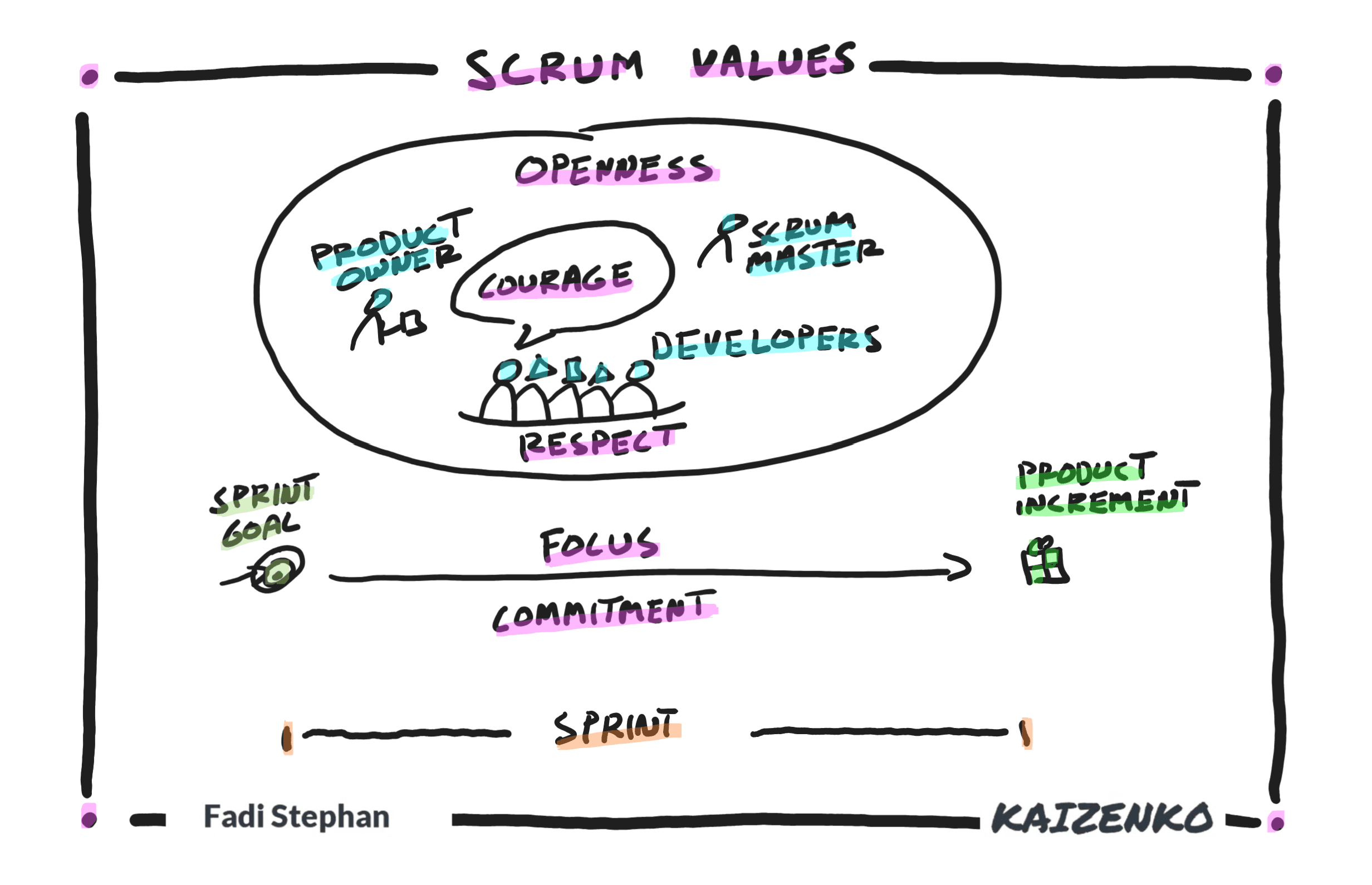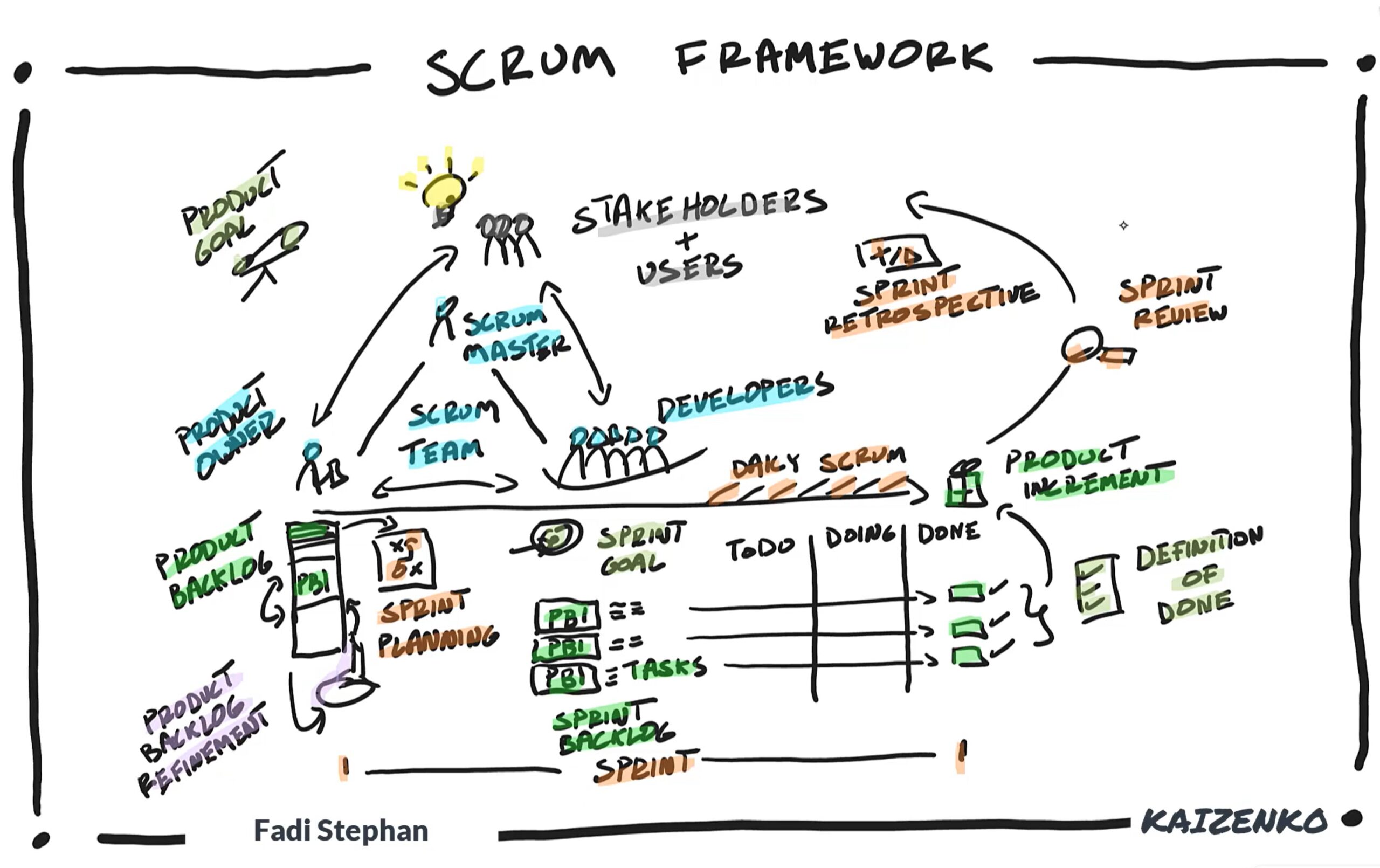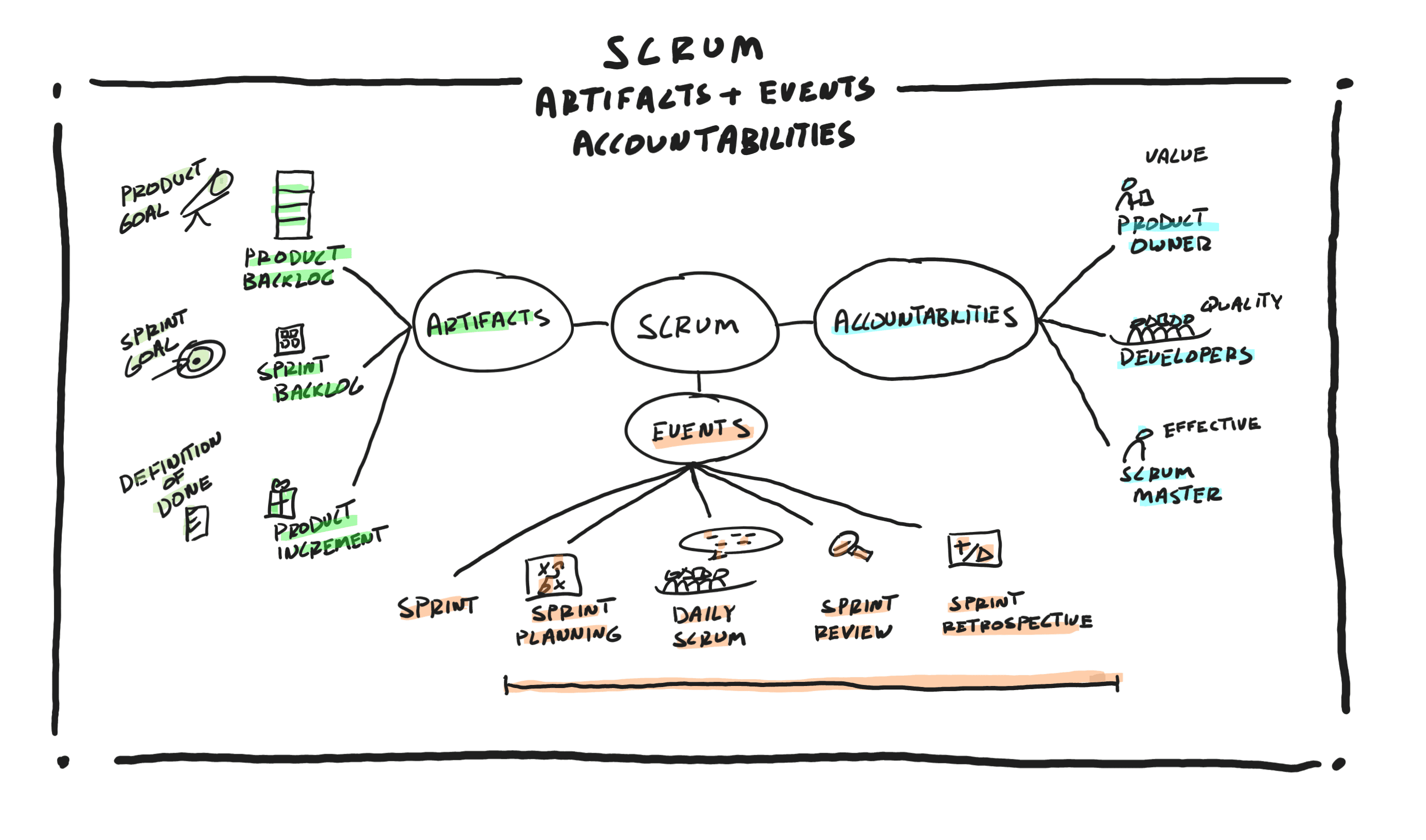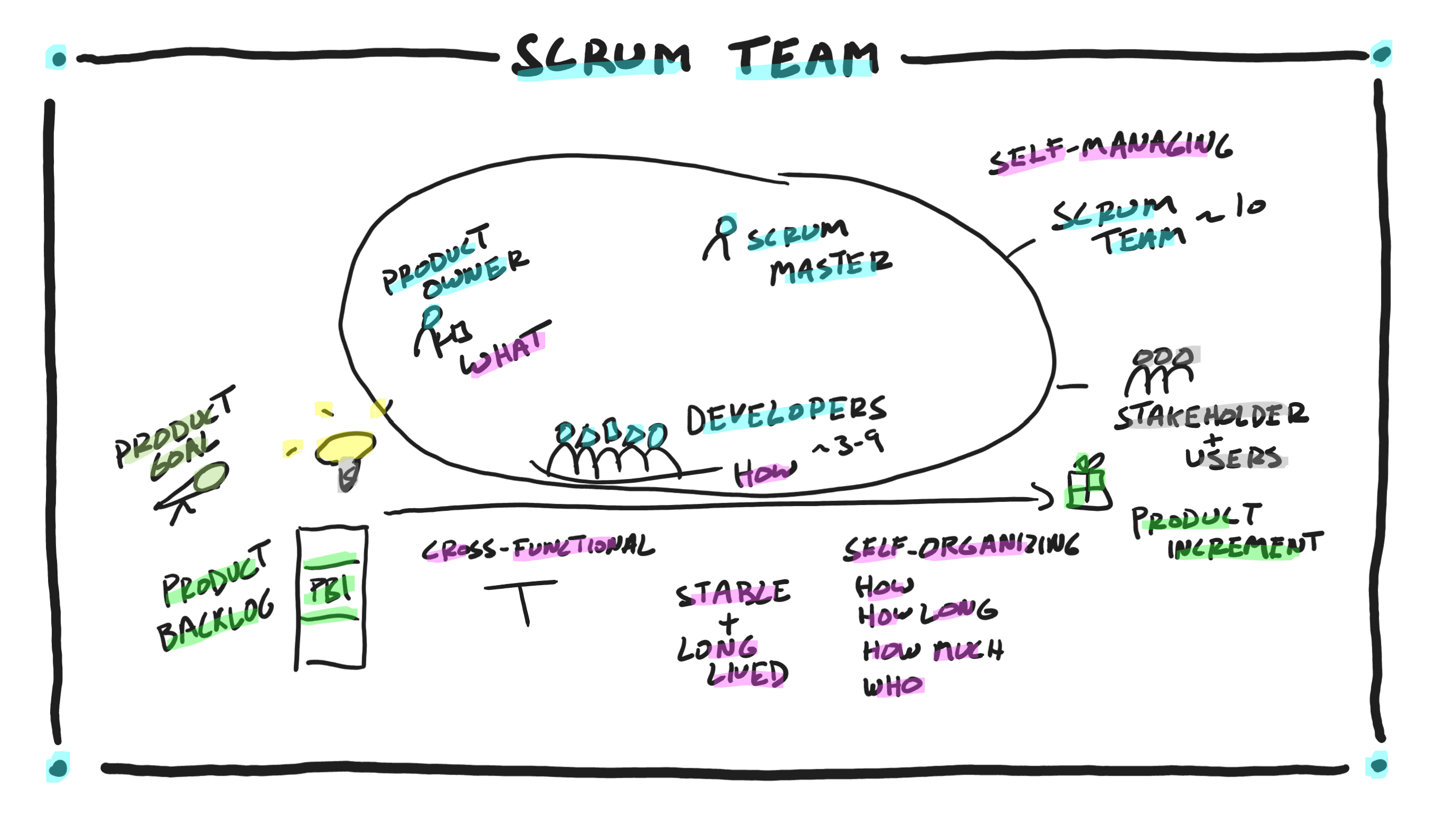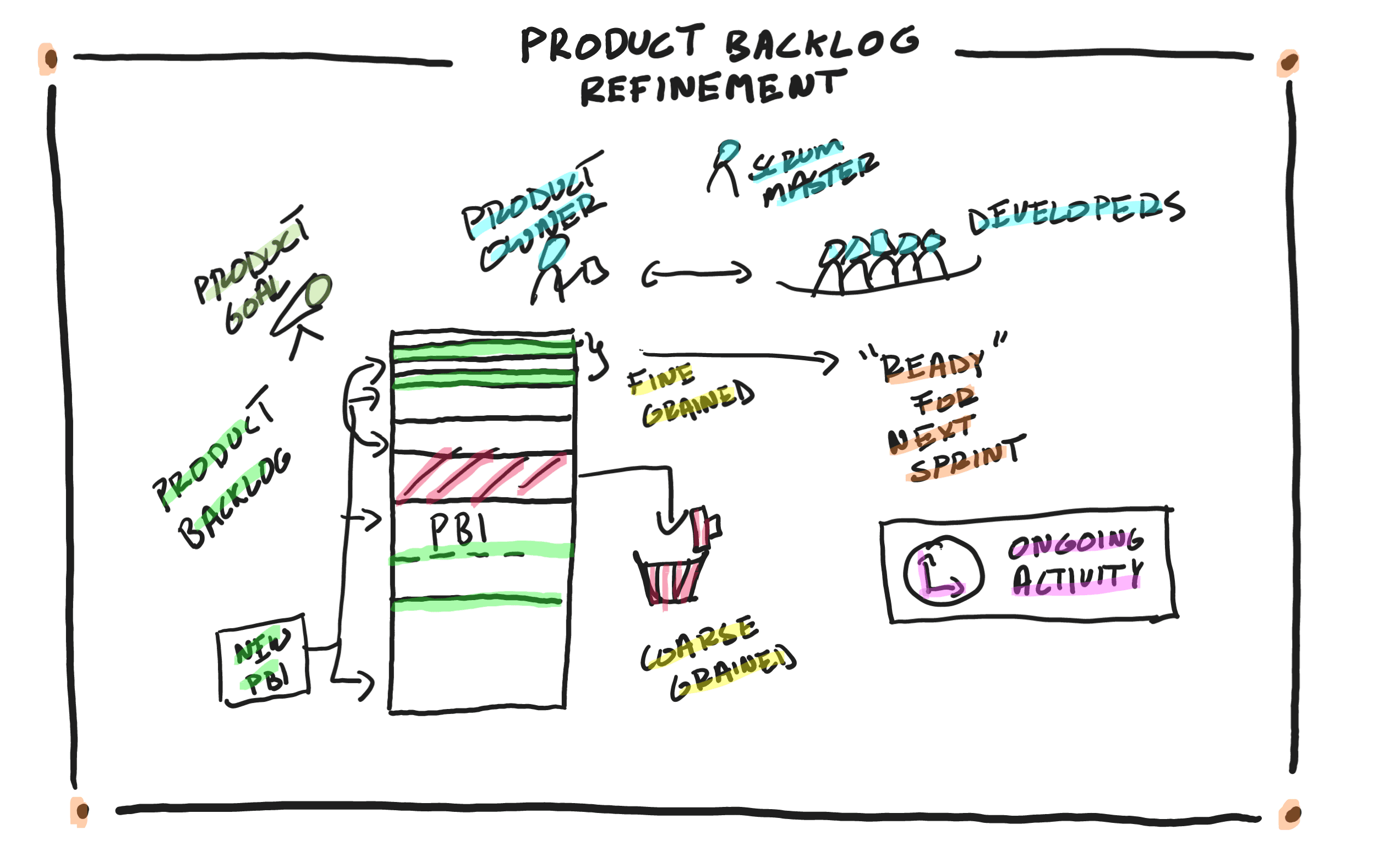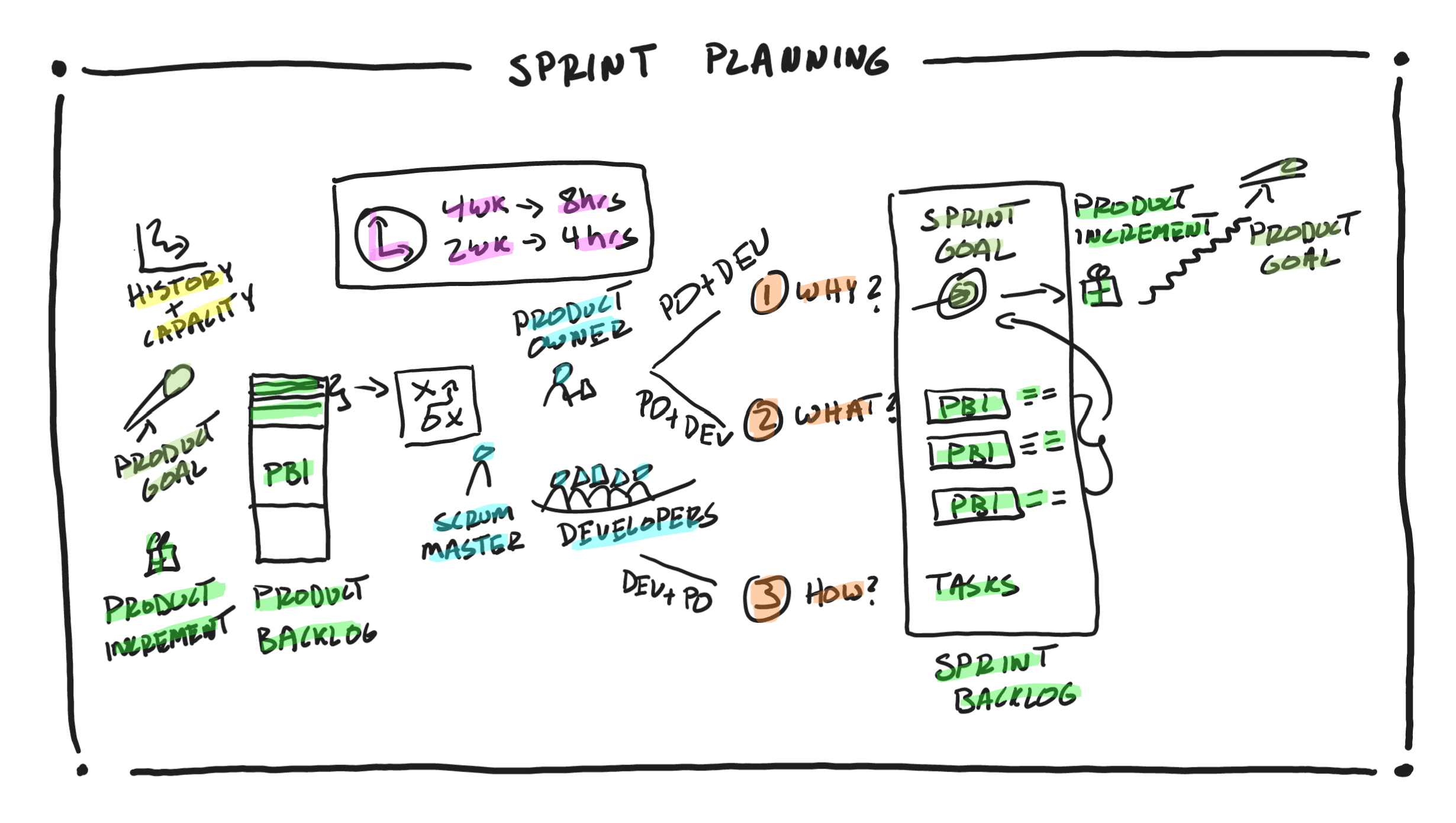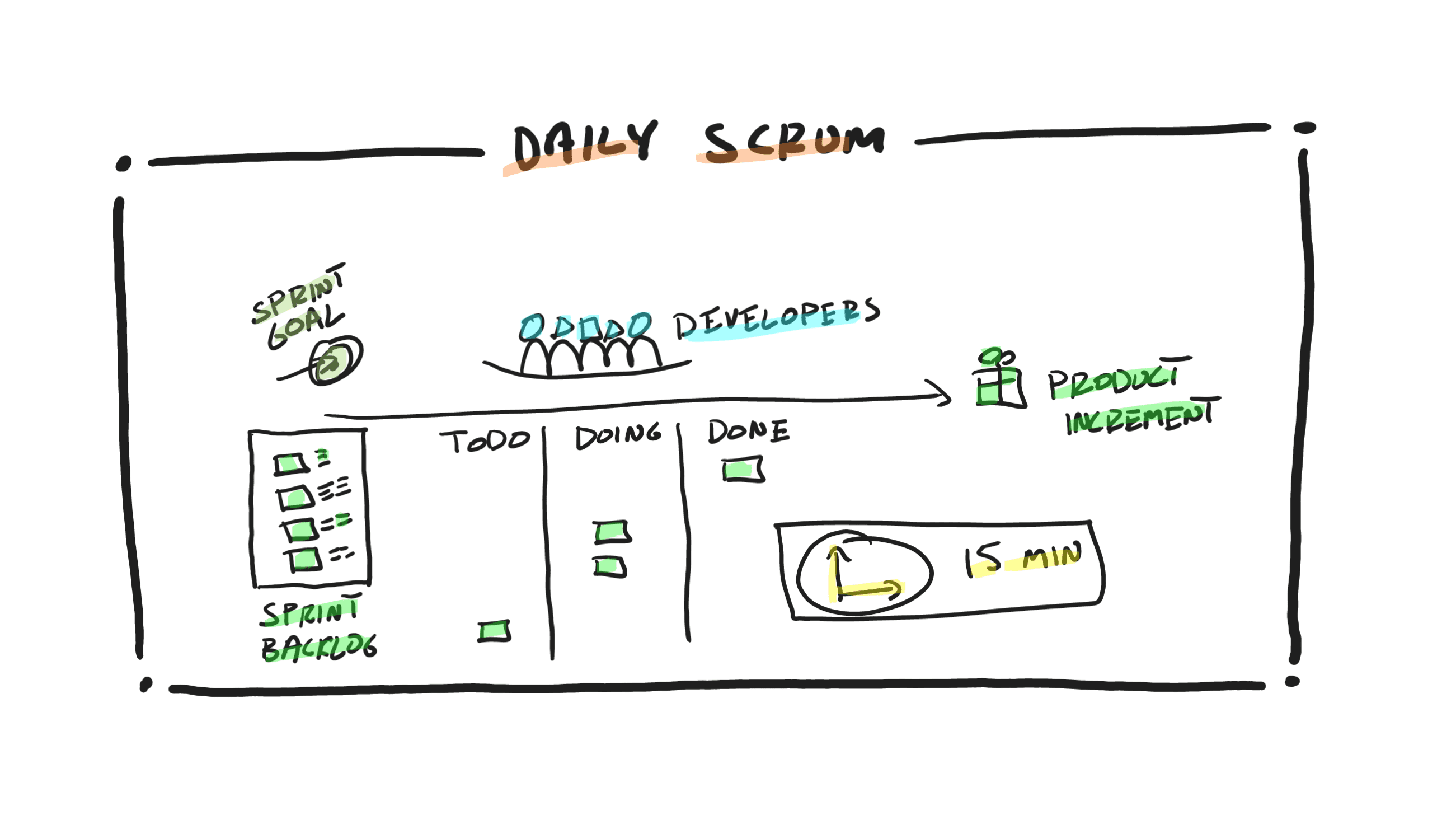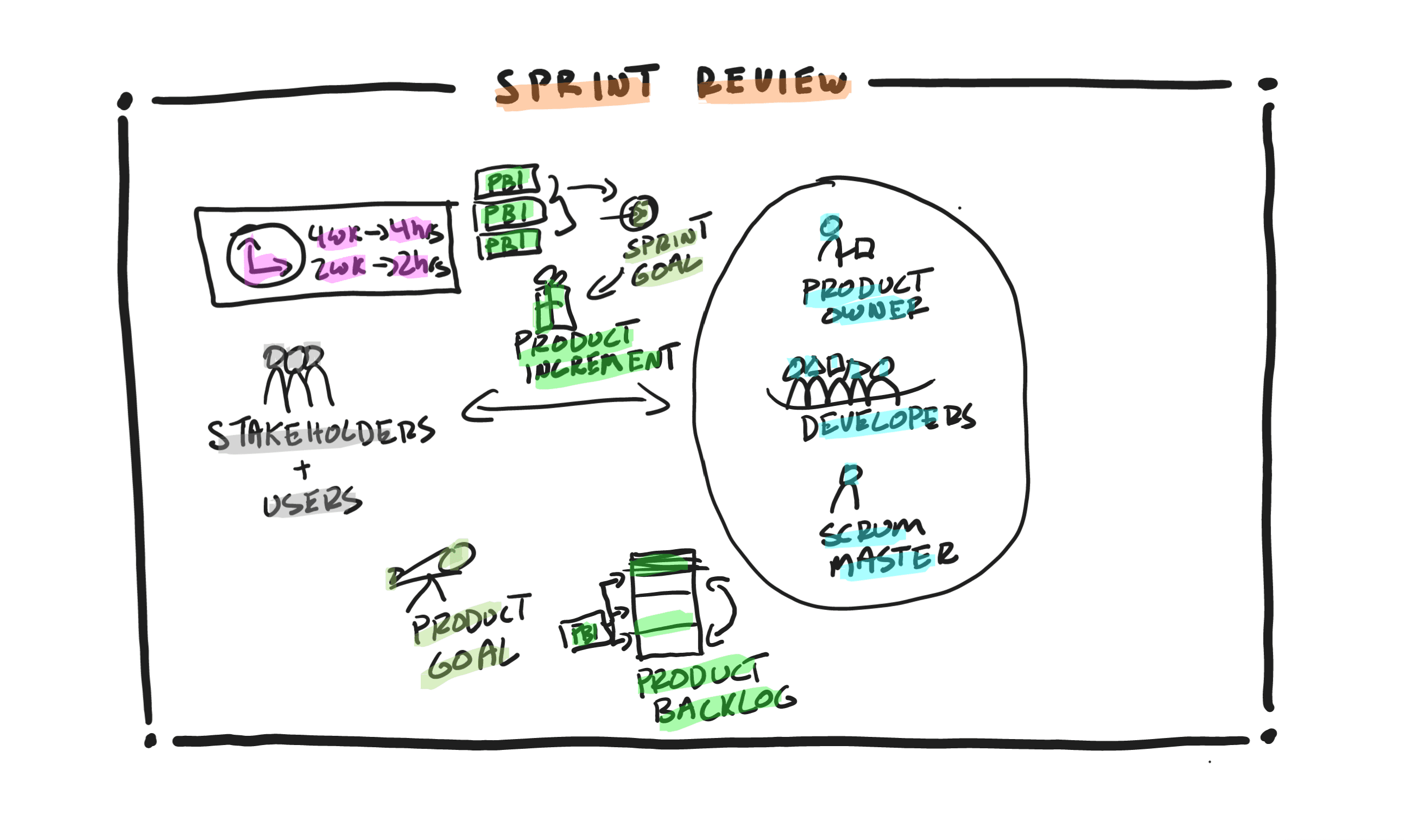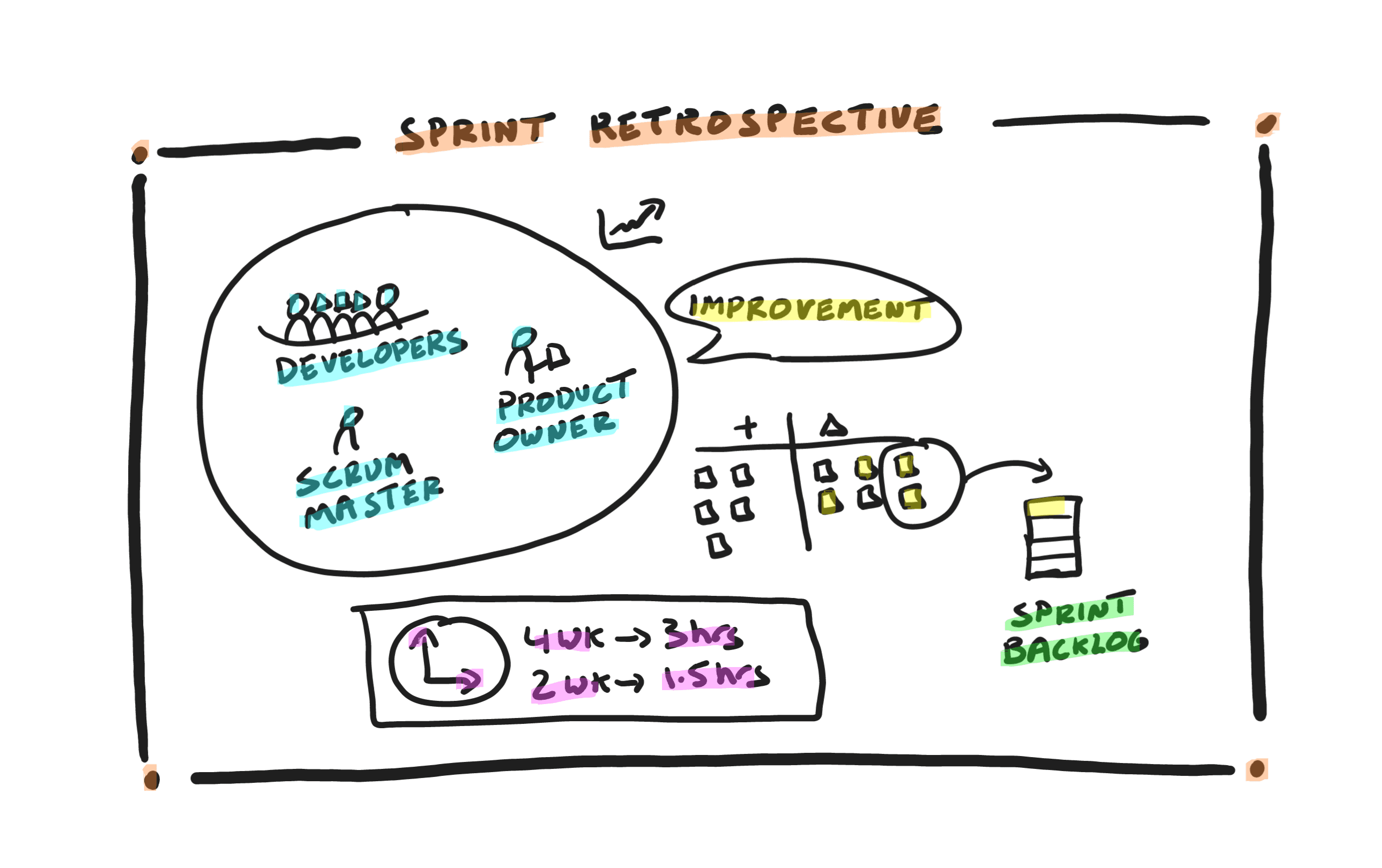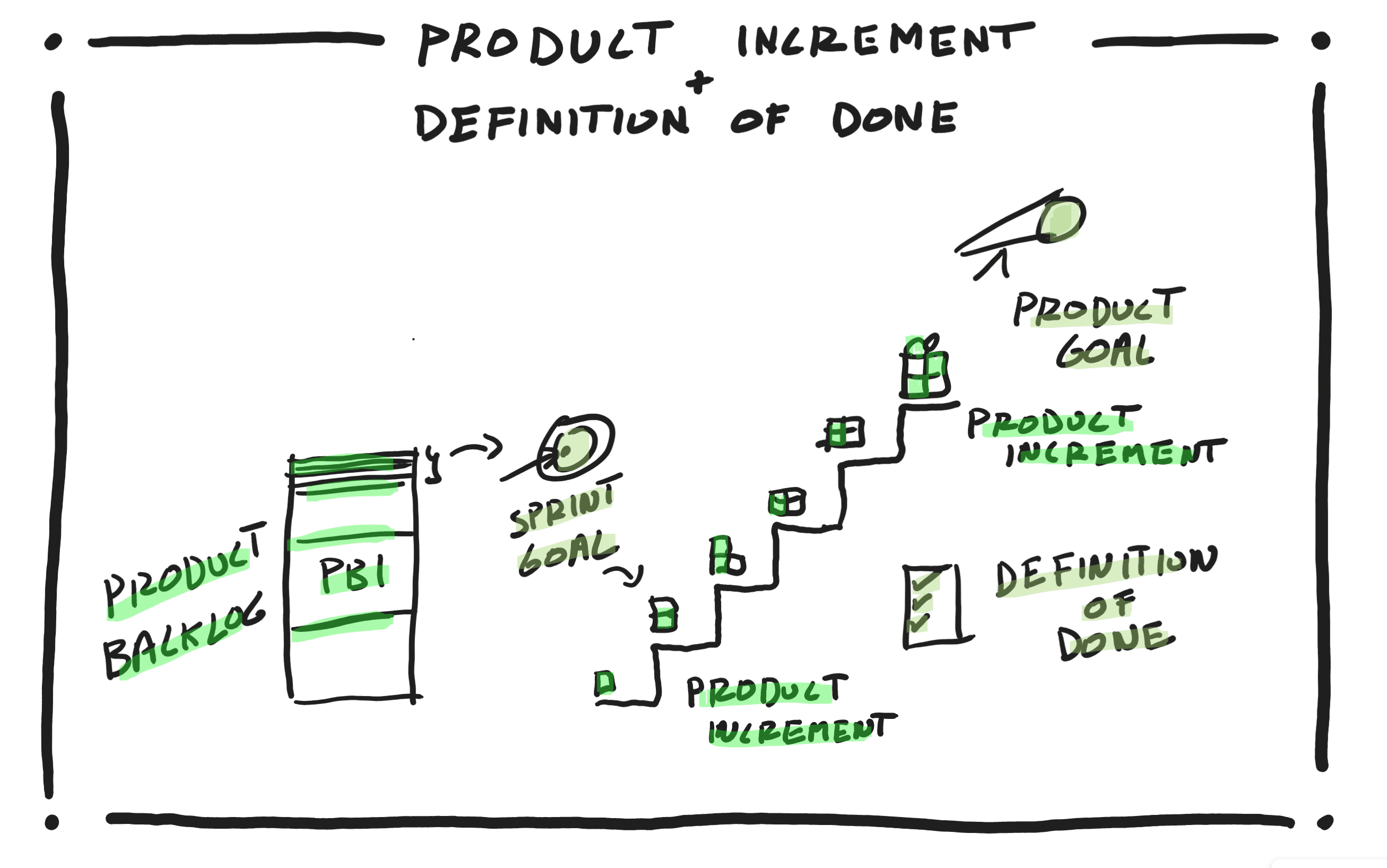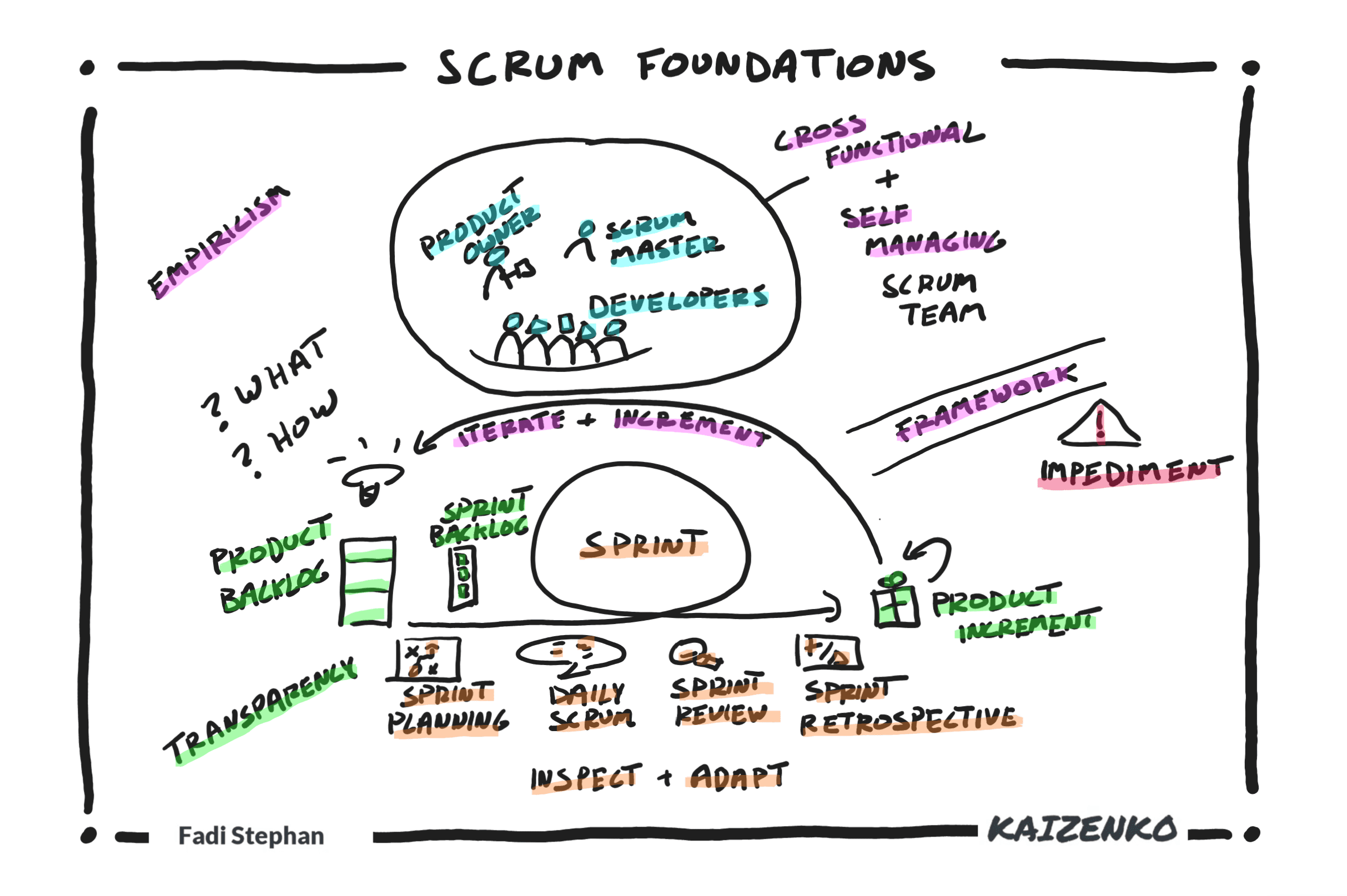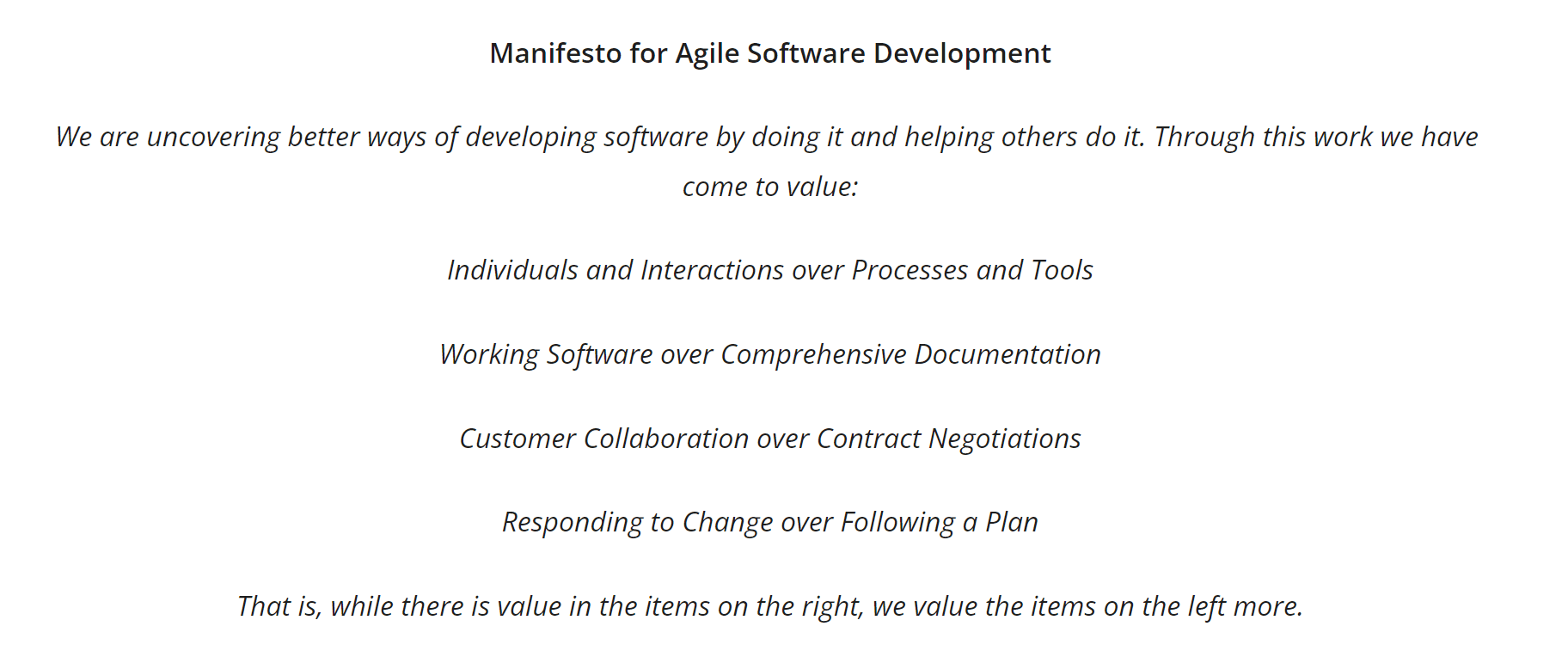For teams to succeed with Scrum, team members must become proficient in living the 5 Scrum values of commitment, focus, openness, respect, and courage.
Commitment: In Scrum, the team commits to each other, not to other people, but to each other, on supporting each other to deliver on the Sprint Goal and Product Goal.
Focus: In Scrum, the team focuses on accomplishing the Sprint goal and minimizes any distractions that might prevent them from accomplishing the Sprint Goal. The team works on 1 Sprint goal at a time.
Openness: In Scrum, the team is open to new ways of working. They make sure that the work is visible and they are transparent about any challenges they are facing that will prevent them from accomplishing the Sprint Goal.
Respect: In Scrum, the team consists of members with various skill sets. The team respects each team member based on their capabilities and support and trusts each other to deliver on the Sprint Goal.
Courage: In Scrum, the team has the courage to work through tough problems, speak up when things are not going well, and then do the right thing. Without the courage to speak up, the team and the organization will not improve.

And those are the 5 Scrum values of commitment, focus, openness, respect, and courage. The way the Scrum team behaves, approaches work, and tackles impediments should be guided by these values. The decisions that they make and the actions that they take should reinforce these values, not diminish them. When these values are embodied by the scrum team and the people they work with, true empiricism comes to life.
For more details, sign up for an upcoming foundational ScrumMaster® (CSM®) class or a Certified Product Owner® (CSPO®) class or Certified Scrum Developer® (CSD®) class.
Next check out the entire Scrum in a Nutshell series:
Scrum in a Nutshell
Scrum is a framework for developing, delivering, and sustaining complex products. It all starts out with our stakeholders, customers, and users that have an idea about a product they need and want developed. They collaborate directly with Developers to turn this idea into reality. Developers in Scrum are not just programmers. They are part of…
Scrum Accountabilities, Artifacts, and Events in a Nutshell
In Scrum, there are 3 accountabilities, 3 artifacts, and 5 events. The 3 accountabilities in Scrum are: The 3 artifacts in Scrum are: The 5 events in Scrum are: And that’s the Scrum Framework as defined by
Scrum Team in a Nutshell
The Scrum team consists of 3 accountabilities, Developers, Product Owner, and Scrum Master. Developers are accountable for building and delivering a quality working Product Increment at the end of each Sprint. They are a small group, typically 3 to 9 members that are cross-functional and self-organizing. Developers are cross-functional to remove bottlenecks and dependencies. Developers…
Product Backlog Refinement in a Nutshell
The Product Backlog is an ordered list of hypotheses, requirements, features, enhancements, or Product Backlog Items that help the team accomplish the Product Goal. The Product Backlog is the team’s single source of work. Meaning, anything the Developers are working on should be coming from the Product Backlog. There are no side requests. Any work…
Sprint Planning in a Nutshell
In Scrum, the Sprint starts with Sprint Planning where the Scrum team plans out their work for the Sprint and creates a Sprint Backlog. The Sprint Backlog is the team’s plan to accomplish the work. Sprint planning is timeboxed to 2 hours per week of Sprint, so for a 2-week Sprint it is one event…
Daily Scrum in a Nutshell
The Daily Scrum is a brief daily planning event by the Developers to inspect their work and the progress they are making toward the Sprint Goal that will result in a Product Increment. The Developers created their Sprint plan or Sprint Backlog in Sprint Planning at the beginning of the Sprint. However, this plan is…
Sprint Review in a Nutshell
The Sprint Review is a working session for the stakeholders, users, and customers to collaborate with the Scrum team which includes the Developers, Product Owner, and Scrum Master, and inspect the progress made toward the Product Goal based on the latest Product Increment. The Sprint Review is about getting feedback from the stakeholders and users…
Sprint Retrospective in a Nutshell
The Sprint Retrospective is a reflection event that occurs at the end of each Sprint. It is for the entire Scrum team which includes the Product Owner, Developers, and ScrumMaster to inspect how they are operating and then come up with a continuous improvement plan to adapt and become more effective as a team and…
Product Increment and the Definition of Done in a Nutshell
The Product Increment is the output of every Sprint and is an increment that brings the team one step closer to the overall Product Goal. This means that each Sprint is focused on a cohesive set of Product Backlog Items that meet a Sprint Goal and not random unrelated items. Once a Sprint starts and…
Scrum Values in a Nutshell
For teams to succeed with Scrum, team members must become proficient in living the 5 Scrum values of commitment, focus, openness, respect, and courage. Commitment: In Scrum, the team commits to each other, not to other people, but to each other, on supporting each other to deliver on the Sprint Goal and Product Goal. Focus:…
Scrum Foundations and Theory in a Nutshell
Scrum is a framework for solving complex adaptive problems with high levels of unknowns, uncertainties, or risks around what to build or how to build it. Scrum involves a cross-functional and self-managing Scrum team that uses empiricism to build products iteratively and incrementally to reduce risk and deliver early and often. The Scrum team uses…
Scrum and the Manifesto for Agile Software Development
Back in February 2001, at the lodge in Snowbird Utah, 17 thought leaders from the software industry got together to discuss the state of software development and compare various lightweight frameworks that popped up in the late 90s because of dissatisfaction with the traditional waterfall approach to building products. The participants shared and learned about…
